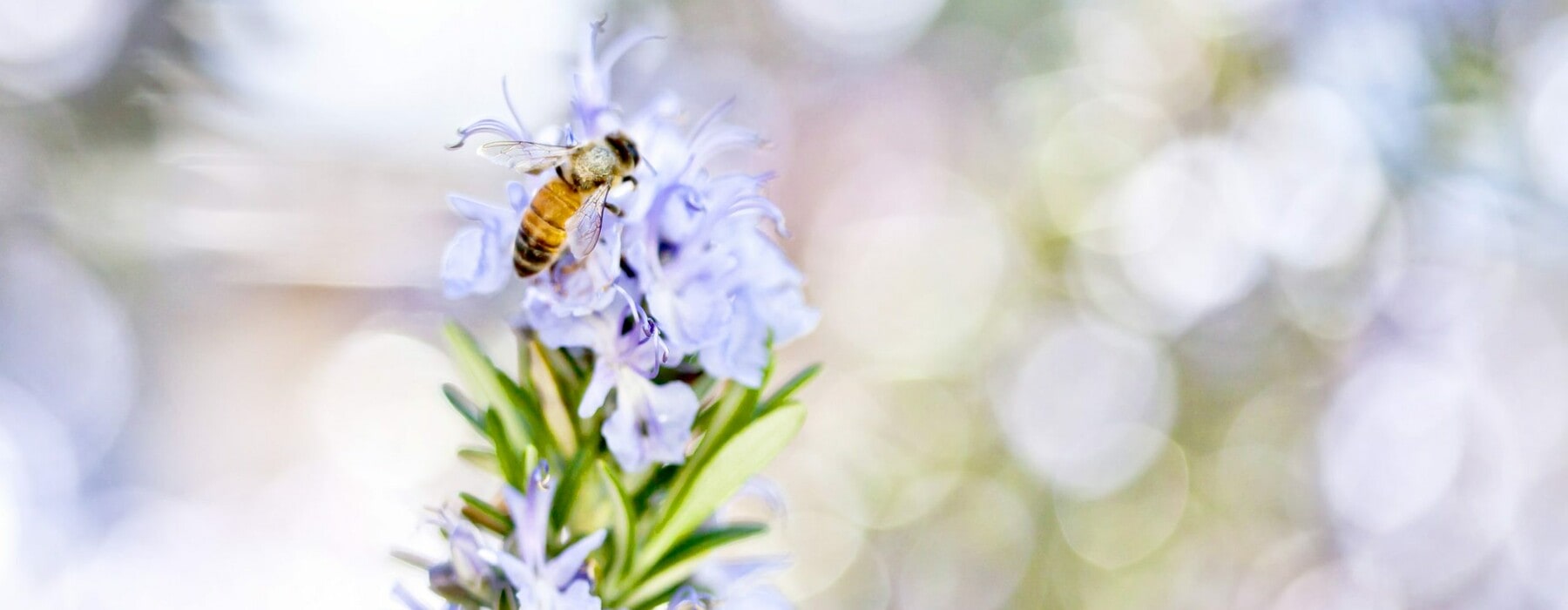Rosemary pops up in Greek folklore and Shakespeare’s writing, but today we value it for scent and flavour.
Rosemary is steeped in history, with many cultural beliefs attached to it. Ancient Greeks believed it improved memory, so students would wearit in their hair and as garlands around their necks when taking exams. In Shakespeare’s Hamlet, Ophelia says, “There’s rosemary, that’s for remembrance. Pray you, love, remember.”
And at weddings in times past, a bridesmaid would plant a sprig from her bouquet. If it grew, a sprig from that bush could be used by any daughter of the marriage on her wedding day. It’s just too lovely.
In the kitchen, rosemary works well with roast meats and potatoes, and it flavours oils, marinades and sauces. You can also sprinkle its beautiful blue flowers on salads, fresh fruit and cheeses. Spear a camembert all over with sprigs of rosemary and cloves of garlic, then bake until creamy. Delicious.
As a first-aid herb, rosemary is antiseptic, so it’s ideal for rubbing on sores and bites. It is also great as a mouthwash, a hair rinse for brunettes and in the bath to alleviate aches and pains.
Best of all, rosemary planted as a hedge is wonderful. Wendyl Nissen has grown a rosemary hedge on one side of her vege garden and dries her bedlinen on it to get the gorgeous scent of rosemary on her sheets.








